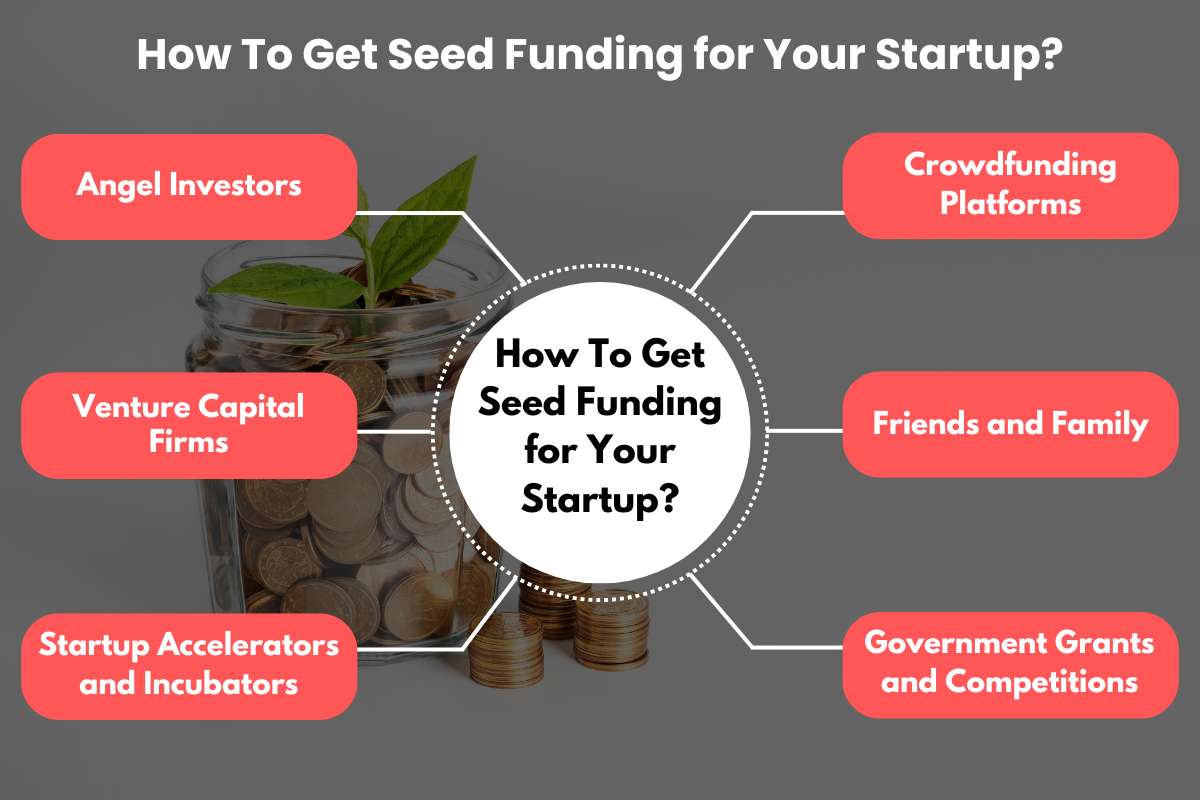With all the technological advancements and evolution, the current business market has become a highly competitive space. Coming up with an idea is not sufficient; various backend factors influence a business’s growth. The last decade has seen a prominent rise in startups. Some of them have done wonders and built a strong base in the economic market. What catapulted these businesses to the top? The initial phase, i.e., seed funding, is crucial for any business to start. Searching for funding for a startup is challenging. In fact, 40 percent of startups fail due to lack of funding. This is not just confined to startups as many businesses have reached the end of their trail due to cash flow struggles.
Tiresome scenarios, right? If you are an entrepreneur with an innovative idea but stuck on how to get seed funding to turn that idea into a reliable business, you are at the right place. This article will help you understand seed funding and find investors to kickstart your next big venture.
Understanding Seed Funding
Before getting on to how to get seed funding, you must be aware of its significance in the initial stages.
Seed funding is all about securing that crucial first capital to bring your startup to life. Think of it as the financial fuel that gets your business moving from the idea phase. Since it is a startup, you would be securing funds from friends and family or maybe an angel investor. This is the point where seed funding comes into the limelight. A seed round is often led by a seed investor who specializes in the initial stage of investing. The main motive is to ensure a smooth process and raise capital quickly.
Your startup’s course depends on the money raised in this stage. It’s used to develop your product, test and prove market demand, hire a workforce, and build prototypes that showcase your business’s potential. While one solid seed round might sound perfect, many startups go through multiple rounds before they’re ready to attract renowned investors.
Now that you have an understanding of the phase before execution, let us try to dissect the question of how to get seed funding.
How To Get Seed Funding for Your Startup?

The initial stage investment mainly comes from:
- Angel Investors: Wealthy individuals invest their money in budding startups. They take a chance on your idea in exchange for a share of your company.
- Venture Capital Firms: VC firms usually invest in more established businesses, but some have special programs to support early-stage startups. These programs offer money and guidance to help startups grow.
- Startup Accelerators and Incubators: These programs, like Y Combinator, give startups seed funding along with mentorship, business advice, and networking opportunities to help them progress quickly.
- Crowdfunding Platforms: Platforms like Kickstarter let ordinary people invest in your startup by offering equity. This is a great way to learn how others perceive your idea.
- Friends and Family: Sometimes, your biggest supporters are your loved ones. They may be willing to invest in your dream, often without the strict demands of traditional investors.
- Government Grants and Competitions: Depending on your industry, you can apply for grants or pitch your idea in competitions to win money without giving away equity.
How to Get Seed Funding: Negotiation Tips to Secure the Best Deal

Negotiating with potential investors is a crucial part of securing seed funding. Whether they’re investing their own money or representing a larger fund, investors want a deal that works for both sides.
You must consider the following aspects to negotiate the best deal.
- Understand the Investor’s Mindset: Investors are in it for the returns. They might love your idea, but they’re ultimately weighing risks against profits. Keep this in mind when putting your arguments and addressing their concerns.
- Know the Value of Your Startup: You must have a clear picture of your startup’s worth before starting negotiations. This includes both financial aspects and your business’s growth potential.
- Listen to the Investor: Negotiation is about communication, not just getting your way. Listen carefully to the investor’s concerns and suggestions. Thoughtful responses can help build trust and lead to mutually beneficial terms.
- Be Willing to Walk Away: Sometimes the best move is knowing when to say no. If an investor offers a low rate to your company or doesn’t his views don’t align with your vision, politely decline and keep searching for the right one.
- Stay Flexible, Within Limits: Know what’s important to you and stick to those boundaries. This might involve adjusting equity terms, investment structure, or other deal aspects to create a fair scenario.
- Think Beyond: This isn’t just about money, it’s about finding a partner who can support your growth. Approach negotiations with respect and a mindset focused on building a firm relationship.
- Focus on the Fine Print: Don’t get distracted by big numbers. Look closely at contract details, including clauses on liquidation preferences, board rights, and anti-dilution provisions. Legal advice is worth considering here.
- Communicate After the Deal: Once the deal is done, keep communication open. Regular updates help build a strong, trusting relationship with your investors, fostering continued support for your startup.

Closing The Deal
If an investor decides to back your startup, they’ll usually present a term sheet outlining the investment terms. For first-timers, some of these terms might feel unfamiliar or even overwhelming. To secure the best outcome when learning how to get seed funding, it’s essential to carefully review the document and consult trusted advisors before finalizing any agreements.
Conclusion
Finding an investor or seed fundraiser is an overwhelming process. This is crucial for any startup that catapults them to success. Learning how to get seed funding is a tiresome process that requires patience, thorough research, and an understanding of the business market. Building a business takes time, and you must find the right partner who aligns with your goals and provides a boost to your idea. Be firm, follow these steps to acquire the right seed funding for your business.


















